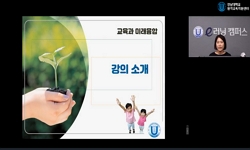This study aims to systematically analyze the current major research trends of academic discourse on death education in Japan in the context of a super-aged society, and to draw research and practical implications for death education in Korean society...
http://chineseinput.net/에서 pinyin(병음)방식으로 중국어를 변환할 수 있습니다.
변환된 중국어를 복사하여 사용하시면 됩니다.
- 中文 을 입력하시려면 zhongwen을 입력하시고 space를누르시면됩니다.
- 北京 을 입력하시려면 beijing을 입력하시고 space를 누르시면 됩니다.
https://www.riss.kr/link?id=A109407280
- 저자
- 발행기관
- 학술지명
- 권호사항
-
발행연도
2024
-
작성언어
Korean
-
주제어
초고령사회 ; 죽음교육 ; 사생학 ; 생명교육 ; 노년교육 ; super-aged society ; death education ; Life education ; deaths of despair ; educational gerontology
-
등재정보
KCI등재
-
자료형태
학술저널
-
수록면
253-284(32쪽)
- DOI식별코드
- 제공처
-
0
상세조회 -
0
다운로드
부가정보
다국어 초록 (Multilingual Abstract)
This study aims to systematically analyze the current major research trends of academic discourse on death education in Japan in the context of a super-aged society, and to draw research and practical implications for death education in Korean society. Using systematic review as a research method, a total of 220 academic papers were selected in order of top ranking from Google Scholar and CiNii, as two representative academic databases in Japan, under death education(English) (n=50), death education(Japanese) (n=67), death and life studies (n=95), and life education (n=8). As a result of the research, death education in Japan has been evolving since the 1990s based on ethical approaches and academic practices, and interdisciplinary research has been carried out as being centered on both school and community education. The main content has evolved into the development of various practice programs reflecting the philosophy of life and death and the entire life cycle. Based on these results, this study discusses the directions, tasks, and practical measures of death education that can be applied to Korean society as well as to researchers and workers who work with elderly citizens. Since Korea is entering a super-aged society where a continuous increase in so-called deaths of despair accompanies, more efforts are urgently needed in this area.
동일학술지(권/호) 다른 논문
-
- 한국노년교육학회
- 최일선
- 2024
- KCI등재
-
아시아 국가의 노인교육 특징 및 시사점: 일본, 대만, 싱가포르를 중심으로
- 한국노년교육학회
- 전수경
- 2024
- KCI등재
-
- 한국노년교육학회
- 박성희
- 2024
- KCI등재
-
- 한국노년교육학회
- 한정란
- 2024
- KCI등재





 스콜라
스콜라






